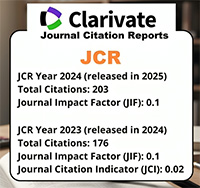Nutritional Anemia During Pregnancy. a Study in a Middle Class Population Treated With Placebo
Abstract
The hematological effect of the lack of supplementary iron during pregnancy, was studied in thirty eight, middle class, well nourished women, treated with placebo. A high frequency of anemia and iron and folate deficiency was found at the end of pregnancy. Six weeks after delivery, in spite of the fact that hemoglobin was normal, iron and folate were still low. The frequency of anemia and nutrient deficiency in cord blood was not significantly different from other groups who received prenatal iron salts. It is suggested that iron and folate stores, in well nourished pregnant women, are insufficient to maintain their hematological status, but the newborn will not be in much disadvantage in relation with those whose mothers received iron during gestation.




















